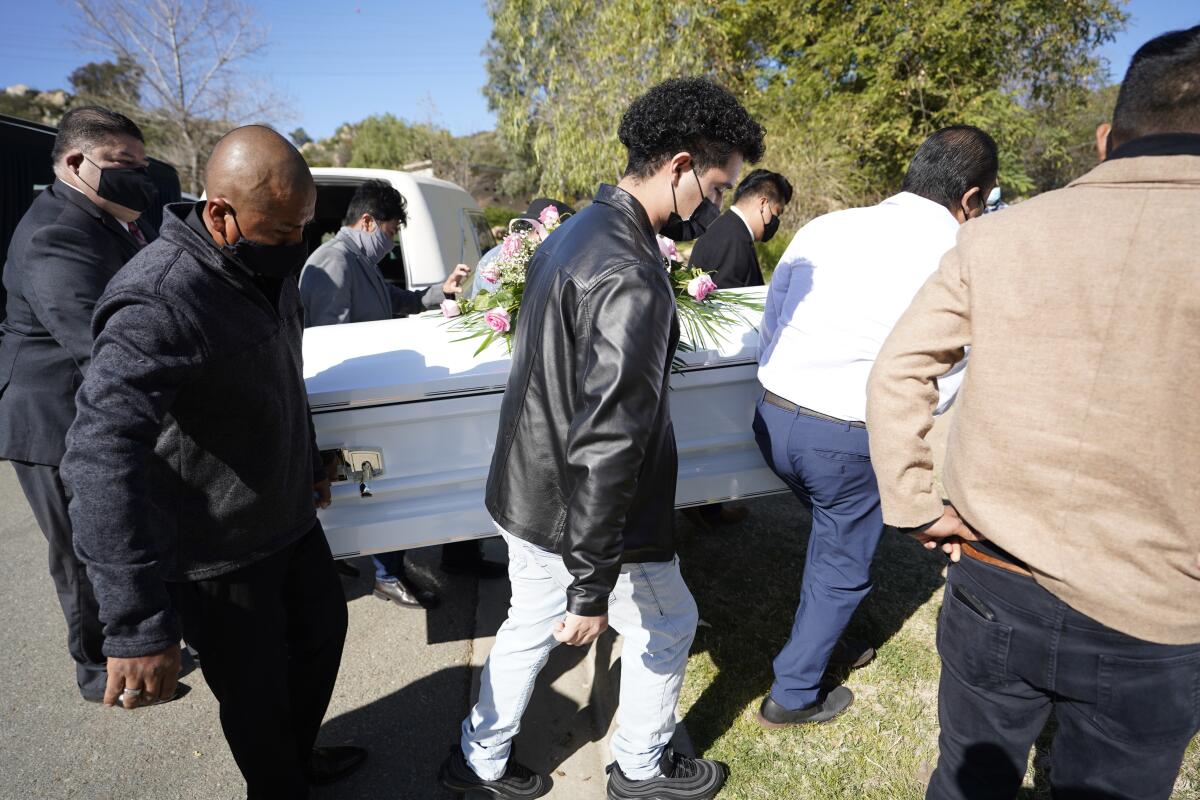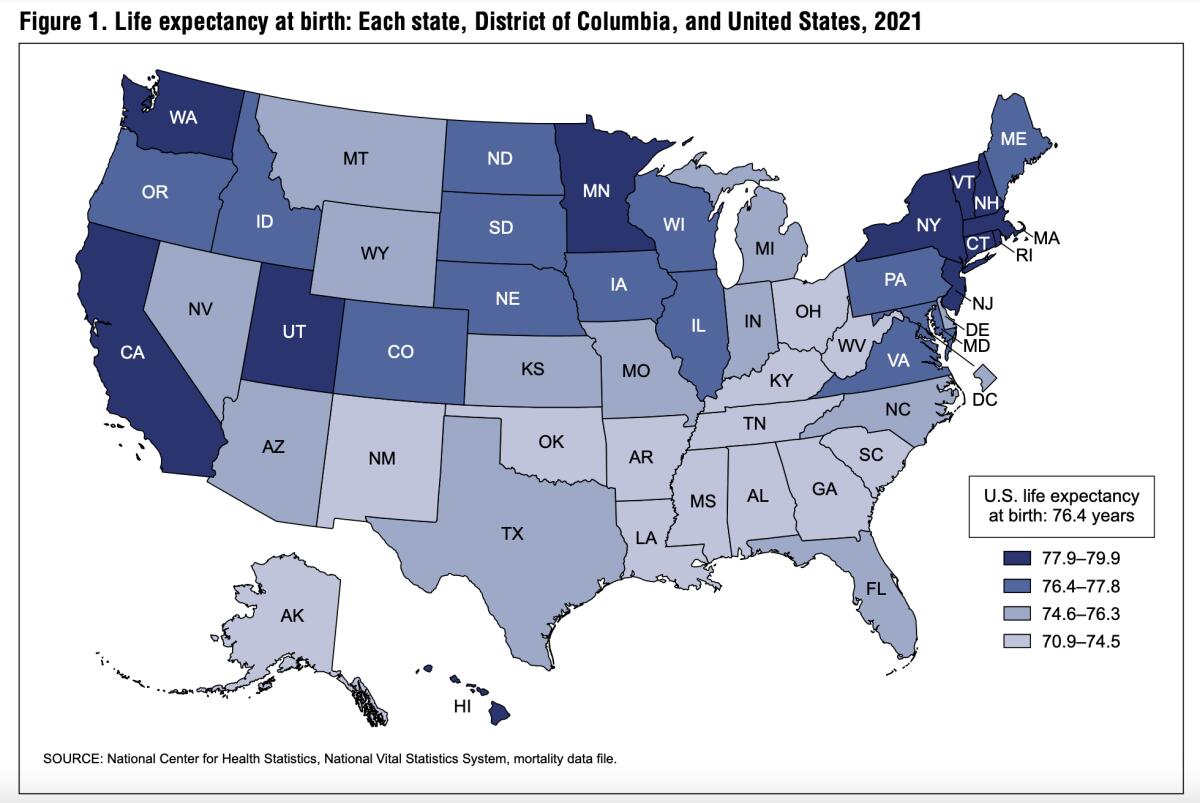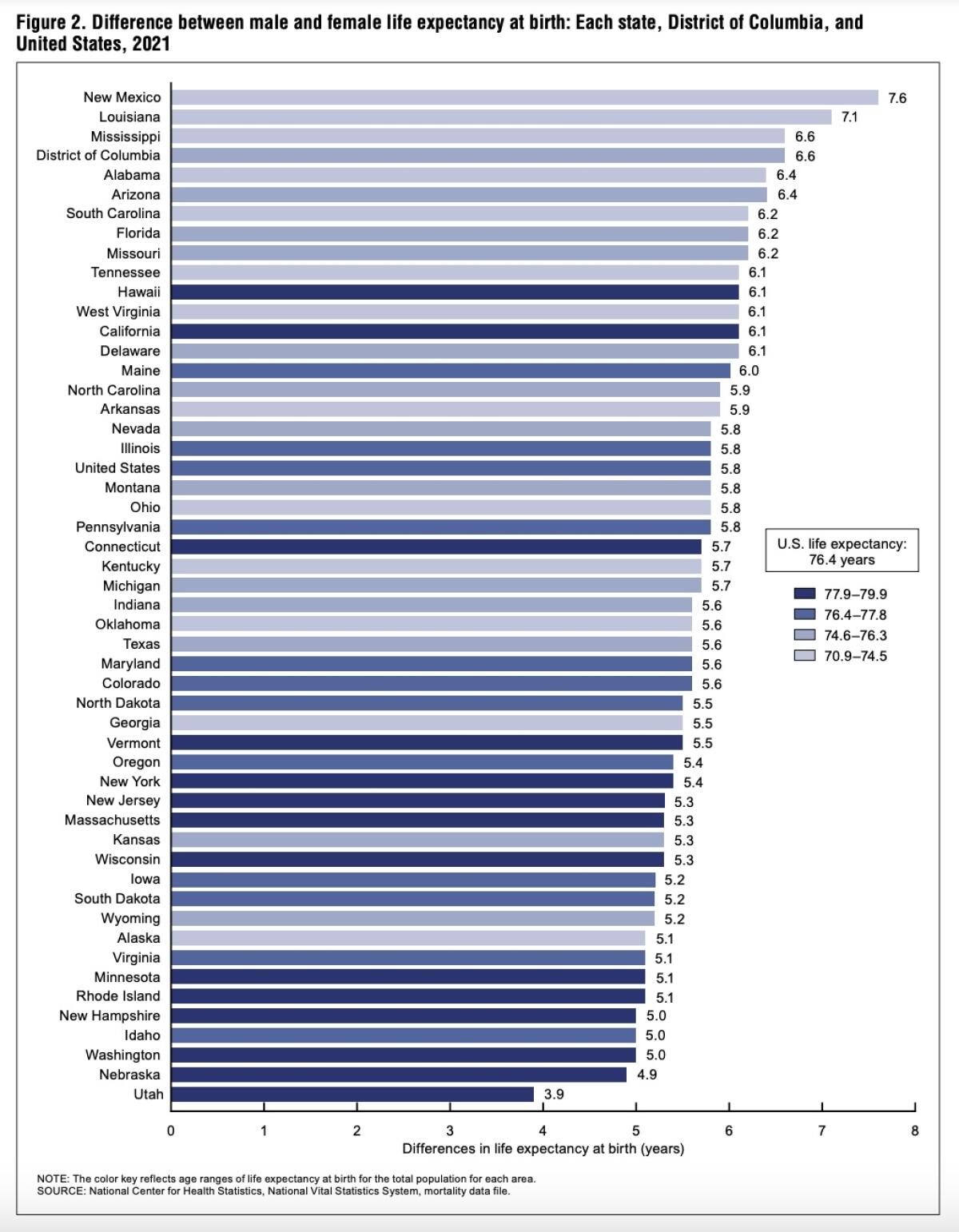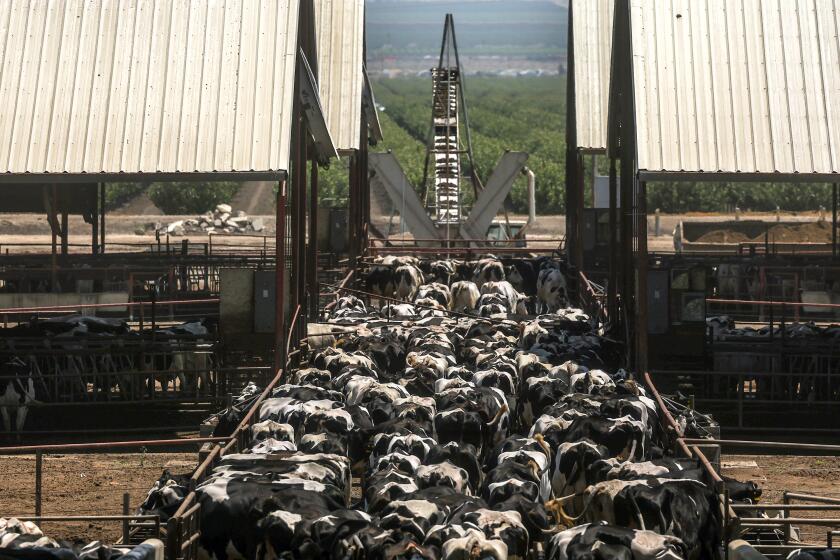See COVID’s toll on California’s life expectancy in new CDC longevity report

It was the year COVID-19 vaccines became widely available, and the pandemic’s startling death toll in California and elsewhere appeared close to being reined in.
Instead, life expectancy in California fell by more than 8 months in 2021, dropping the Golden State to 10th place in the nation, according to a new report from the Centers for Disease Control and Prevention.
An analysis of all 50 states and the District of Columbia found that babies born in California in 2021 could expect to live 78.3 years — down from 79 years in 2020, when California ranked fourth in the nation.
The decrease, which was reported Wednesday by the CDC’s National Vital Satistics System, revealed that the promise of COVID-19 vaccines — along with other public health measures — was not enjoyed uniformly across the nation.
While life expectancy dropped in California and 38 other states, it increased in 11 others and held steady in the District of Columbia. (New Jersey logged a gain of 1.5 years between 2020 and 2021, the best performance among the states.)
This alarming trend, which began before COVID, fuels a deadly cycle of a sick workforce and weakened economy.
In 2019, before the coronavirus reached U.S. shores, the state’s overall life expectancy at birth was 80.9 years, with an expected life span of 78.4 years for men and 83.3 years for women. That put California in the No. 2 spot, just slightly behind Hawaii. (The states were so close that Hawaii’s overall life expectancy that year was also reported as 80.9 years.)
Then deaths during the first year of the pandemic shaved 1.9 years off California’s life expectancy at birth. Only 15 states weathered larger declines. (New York saw the biggest drop, losing 3 full years of life expectancy between 2019 and 2020.)
Expected life spans in the Golden State shrank by another 0.7 years in 2021, according to the new report. That was the 27th-largest decline, putting it in the middle of the pack. (The biggest drop was in Alaska, where it plunged from 76.6 to 74.5 years.)

The life expectancy of Americans as whole fell by 0.6 years to 76.4 years, according to the new report. CDC researchers attributed that decrease primarily to high numbers of COVID-19 deaths and fatalities from accidental drug overdoses.
Hawaii retained the longevity crown in 2021, with a life expectancy of 79.9 years.
That was a full 9 years longer than in Mississippi, which ranked 51st among all states and the District of Columbia. A baby born in the Magnolia state could expect to live 70.9 years, according to the new report.
The states that rounded out the top five overall in 2021 were Massachusetts (79.6 years), Connecticut (79.2 years), New York (79.0) and New Jersey (also 79.0).
Joining Mississippi at the bottom of the list were West Virginia (71.0 years), Alabama (72.0 years), Louisiana (72.2 years) and Kentucky (72.3 years).
More broadly, “states with the lowest life expectancy at birth were mostly Southern states,” the report said. “States with the highest life expectancy at birth were predominantly Western ... and Northeastern states.”
Women were expected to outlive men in every state in 2021. The life expectancy gap ranged from a high of 7.6 years in New Mexico to a low of 3.9 years in Utah. The average gender gap for the country as a whole was 5.8 years, according to the report.
Women tend to live longer than men. But it wasn’t always that way, a new study says.
In California, the expected lifespan was 81.4 years for a baby girl born in 2021 and 75.3 years for a baby boy — a difference of 6.1 years.
For the most part, the states with the largest differential between the sexes had lower life expectancies overall. Meanwhile, states with the smallest discrepancies between males and females tended to have higher overall life expectancies, the CDC noted.

CDC researchers also calculated the remaining lifespan for Americans who were 65 years old in 2021. The nationwide average was 18.4 years — 17.0 years for men and 19.7 years for women.
Life expectancy at 65 is always greater than life expectancy at birth because the pool of people who survive to their 65th birthday excludes those who weren’t able to reach that milestone.
The risk of death in the first year of life is particularly high — the U.S. infant mortality rate in 2021 was 5.44 deaths per 1,000 live births — and actuarial life tables from the Social Security Administration show that it takes until age 49 for the mortality rate to reach the same level.
In 2021, 65-year-olds in Hawaii had the most years to look forward to, with an average remaining life expectancy of 20.6 years. That was followed by Connecticut at 19.9 years, Massachusetts at 19.6 years, and Minnesota, New York, Vermont and New Jersey at 19.4 years.
Mississippi ranked 51st on this longevity list as well, offering 65-year-olds an expectation of 16.1 more years to live. West Virginia also had a remaining life expectancy of 16.1 years, followed by Alabama, Oklahoma and Kentucky at 16.4 years.
California beat the nationwide averages for 65-year-olds with a remaining overall life expectancy of 19.3 years. That included 17.8 additional years for 65-year-old men and 20.7 years for 65-year-old women.








